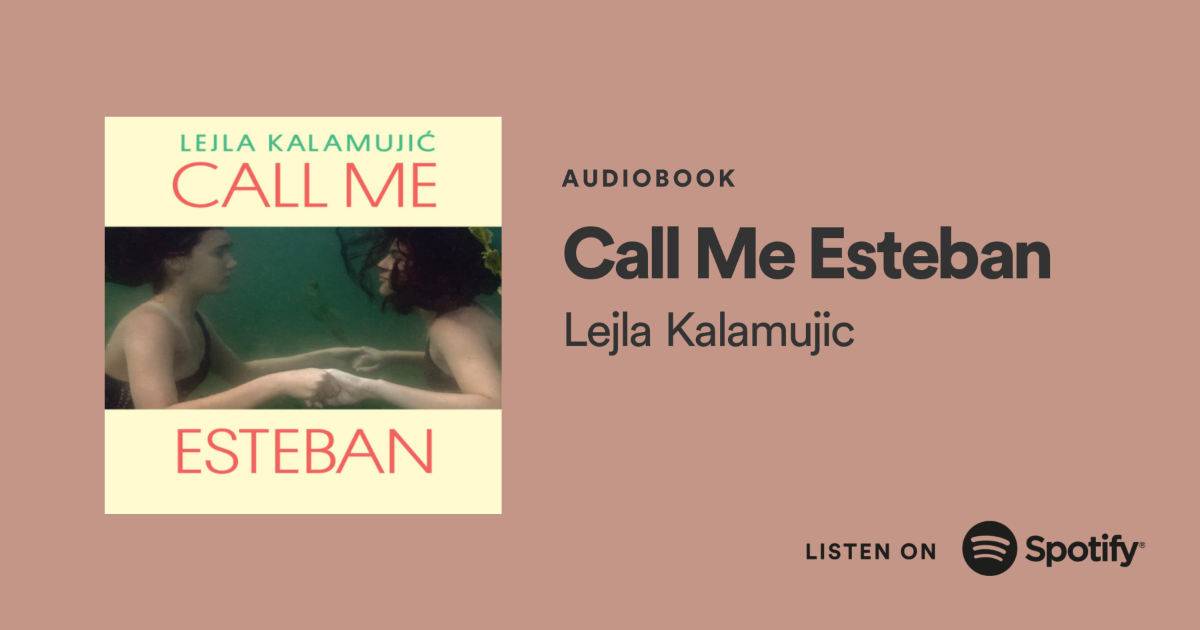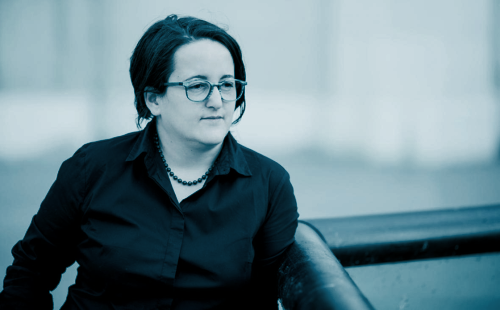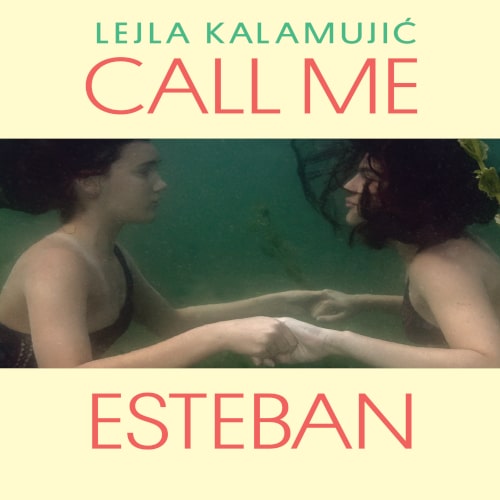With unapologetic vividness, Lejla Kalamujic depicts pre- and post-war Sarajevo by charting a daughter coping with losing her mother, but discovering herself. From imagined conversations with Franz Kafka to cozy apartments, psychiatric wards, and cemeteries, Call Me Esteban is a piercing meditation on a woman grasping at memories in the name of claiming her identity.
Now also available at:

⭐️⭐️⭐️⭐️⭐️
"Stylish and brisk, these stories refuse to wallow in tragedy, becoming instead a convincing testament to the consolations of art." —Publishers Weekly starred review
"Think of Lejla Kalamujić’s astonishing Call Me Esteban as a series of dispatches from a war-torn world. . . . The histories and memories refracted through Kalamujić’s rigorous imagination, expertly translated by Jennifer Zoble, are unforgettable." —Christopher Merrill, author, Only the Nails Remain: Scenes from the Balkan Wars
⭐️⭐️⭐️⭐️⭐️
"There’s an immediacy to Lejla Kalamujić’s writing in Call Me Esteban, a haunting portrayal of what it means to live in a society that’s been fragmenting for the vast majority of one’s life. The staccato prose and rapid-fire sentences on display help to further those ideas, as well as giving a sense of the narrator’s anxiety—an experience that takes this book even further into a haunting space." —Tobias Carroll, Words WIthout Borders
"Playful yet piercing, these linked stories weave queer identity with the bitter aftertaste of the Balkan wars. The protagonist, Lejla, navigates adventures from the imaginary—a doorstep conversation with Franz Kafka, a letter to Elizabeth Bishop, scrawled in a psychiatric ward—to lethally real: 'Bullets hurtle through the air like bloated birds.' A nurturing partner dangles the hope of a happy ending for a weary soul. Kalamujić takes autofiction to the next level." — Hamilton Cain, Oprah Daily
⭐️⭐️⭐️⭐️⭐️
"[A] haunting and unguarded novel . . . Where grief and love intersect is where Call Me Esteban takes us, to the emotions that arrive when we truly process the hardships we endure." —Costa B. Pappas, Fiction Writer's Review
About the Author
Lejla Kalamujic is an award-winning queer writer from Bosnia and Herzegovina. Call Me Esteban received the Edo Budisa literary award in 2016 and it was the Bosnian-Herzegovinian nominee for the European Union Prize for Literature in the same year.
About the Translator:
Jennifer Zoble translates Bosnian/Croatian/Serbian- and Spanish-language literature. Her translation of Mars by Asja Bakic (Feminist Press, 2019) was selected by Publishers Weekly for the fiction list in its “Best Books 2019” issue. She contributed to the Belgrade Noir anthology (Akashic Books, 2020), and her work has been published in McSweeney’s, Lit Hub, Words Without Borders, Washington Square, The Iowa Review, and The Baffler, among others. She’s a clinical associate professor in the interdisciplinary Liberal Studies program at NYU..

Follow Us:
Stay connected and discover more amazing books. Follow book&zvook on Facebok and Instagram for updates, behind-the-scenes content, and exclusive offers.

